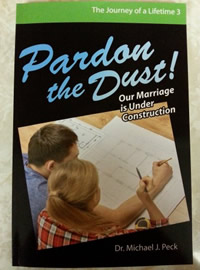Understanding Conflicts and How to Resolve Them
Definition: “A conflict is that unpleasant state that occurs when two or more persons disagree about a situation.” Conflicts can occur at any level of relationship within the human community. They can range from minor situations such as who arrived at the parking space first to the more serious conflicts that take place in marriage.
Description: The most typical conflicts of marriage include the following:
1. Expectations not fulfilled
2. Trust that is broken
3. Parenting issues, esp. discipline
4. Being taken for granted
5. Lack of respect
6. Mate that is critical, hard to please
7. Money, it’s handling and spending
8. Immaturity and how we view things
9. Typical misunderstandings
10. Lack of willingness to compromise on things not essential
Danger: When couples live in frequent conflicts that are not resolved, several situations are sure to develop:
1. Unresolved conflicts affect our fellowship with the Lord (Ephesians 4:30).
2. Unresolved conflicts hurt the love relationship at every level. Think of the five kinds of love:
A. Phileo-friendship;
B. Eros-romance;
C . Storge-secure love that just fits;
D. Epithumeo-passion/intimacy;
E. Agape-unconditional.
3. Unresolved conflicts set a poor example to our children.
4. Unresolved conflicts hinder God answering our prayers (1 Peter 3: 7).
5. Unresolved conflicts rob a couple of the joy that God intended for them.
6. Unresolved conflicts create a tension in the home rather than peace and joy.
7. Unresolved conflicts waste a lot of energy. It takes work to stay angry!
Design: How then do we resolve a conflict?
Think of the IMPACT
1. “I M” stands for I must.
2. “P” stands for: Pray for wisdom (James 1:5) and direction (Proverbs 3:5-6).
3. “A” stands for: Arrange the details that are very important.
A. This includes choosing the right time (never just before bed!)
B. Choosing the right place (never in front of our children).
C. Choosing the right tone (never sarcastic, angry, or hurtful).
4. “C” stands for: Communicate, Compromise, and Confess.
A. Communicate truthfully in love (Ephesians 4:15).
B. Compromise in the non-essentials; but never in obeying Scripture!
C. Confess wrongdoings as forgiveness is extended and received.
5. “T” stands for: Treat my mate the way I wish to be treated (Matthew 7:12).
As believers, we must be careful not to intentionally offend our spouse (or any others as well). We need to resolve our conflicts and experience the absolute joy that the Lord Jesus wants to bring into our home and marriage.





 Hi, I am Michael Peck. Karen and I have served for thirty-one years as a pastor and wife in several precious churches in the state of New York.
Hi, I am Michael Peck. Karen and I have served for thirty-one years as a pastor and wife in several precious churches in the state of New York. 